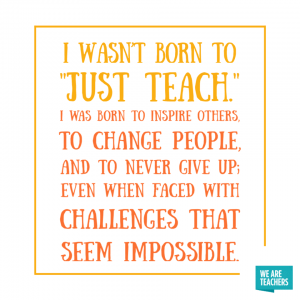E-Portfolio Self Assessment – April 7th 2021
*I am not sure if I added that correctly as there is more than one box for certain criteria but what I highlighted I believe is accurate*
Comments: I gave myself this mark for the fact that although I thought my blog posts were well written and I took the time to make a title to highlight what I would be talking about for that post, some of my posts did not fully relate to the topics discussed in that week or weeks prior. I also did not elaborate fully on how I would bring certain things into my classroom or what my ideas would be about. I did show growth and understanding along the way that helped me to understand and connect more with myself from what was learned in class as well as when I was out in my community doing my linguistic landscape and learning about my family history in my Language Profile.
-_-_-_-_-_-_-_-_-_-_-_-_-_-_-_-_-_-_-_-_-_-_-_-_-_-_-_-_-_-_-_-_-_-_-_-_-_-_-_-_-_-_-_-_-_-_-
Second Times The Charm
Reflection 5 – Week 10: March 24, 2021
Meeting with the Mexican exchange students this week I felt more relaxed knowing our group had a plan in place instead of trying to come up with ways for the students to talk when we met them the first time. We made a game that called a Colour Scavenger Hunt and depending on the colour on the screen, depended on what we had to go and find to bring back. Although the children did not fully understand and thought they had to say what was on the screen, they still participated which we were all happy about. Once our game was done, we discussed what they liked to do for fun and most of them said video games and then named a few, others liked to draw or colour. One girl asked what our favourite songs were and ended up playing one of them for us to all dance along to which everyone got a giggle from.
I enjoyed getting to know the children more this week as I felt like they were more comfortable with us compared to the first time we met and I believe we were more comfortable with them as well. Coming in for the second time, we knew more of what we were getting into with some students not knowing English, some students knowing English and some being shy and not wanting to talk. It also helped that we had a game planned out and that our group was not afraid to ask more questions when the group got silent. Most students did not turn on their mics but when they wanted to say something they would type it, which we were fine with as everyone has their own comfort level.
After the class ended, this interaction made me think about how it will be when I first start teaching my own class. How the first few days will be nerve wracking and some may not even talk to me or other students. By getting to know the students and understanding their likes and dislikes I will be able to create an activity and if I cannot figure out what they like and do not like on the first few days, I will make an activity to help me get to know them and them get to know me. It is normal to be nervous at the beginning, but working towards knowing your children and them knowing you is something that can be overcome as a team which is what I found our group did today in class.
-_-_-_-_-_-_-_-_-_-_-_-_-_-_-_-_-_-_-_-_-_-_-_-_-_-_-_-_-_-_-_-_-_-_-_-_-_-_-_-_-_-_-_-_-_-_-
Reflection 4 – Week 8: March 8 – 10
Language Profile
While learning more about my language profile, it got me to thinking why I don’t take it on myself to learn my language that my great grandparents once spoke. If I was to learn one of their languages, it would make me feel like I knew them a bit better although never being able to meet them. I also realized while talking with my aunt about my family history, that just how hard it was to come over to Canada. What I thought I knew and what I learned about their travels surprised me. Although it is not as hard today to come to Canada, many are still frowned upon if they move to Canada and choose to still speak a different language other than English. Although some choose to simply just speak English, I believe that everyone should have a say once they come to Canada if they want to continue to speak their own language as well as English. There are many people these days that choose to learn many languages, so I am not exactly sure why it is so hard for someone coming to Canada not be looked at the same, they are just learning English as a second language instead of their first.
If I had the chance to take a language that I would really like to learn, I would choose to, for the fact that this language could take me places and meet people that I never would have thought of meeting if I only spoke one language. Being multilingual is an asset and more people need to start looking at it as a benefit instead of a disadvantage
-_-_-_-_-_-_-_-_-_-_-_-_-_-_-_-_-_-_-_-_-_-_-_-_-_-_-_-_-_-_-_-_-_-_-_-_-_-_-_-_-_-_-_-_-
Reflection 3 – Week 6: February 22 -24
Meeting the Mexican Exchange Students
The week we got back from Spring break I had forgotten about that being the day we got to meet our Mexican exchange students. To see all those faces and hear all those ‘good mornings’ really brought light to what I thought would be a normal Wednesday. Getting to talk listen to them talk their language and look so happy was something I think about regularly still. When we got put into groups, I was expecting to be able to understand them more than I did. At first, I had no idea how I was going to interact with students who did not know any English and myself not knowing any Spanish. Thankfully, Andrea spoke Spanish and she covered questions that we had for them and some of the children also typed in the chat.
For our next group it was harder to figure out what to do due to no one in that group speaking English and none of the children new well enough English. My group members and I figured that google translate would be our best option and we were able to get some answers from the children in our group that way, either through the chat or they tried to speak to us.
It took until the class ended to realize how nervous I had been having to deal with a different language that I don’t deal with on a regular basis and I thought about how the children must have been feeling too although they looked extremely excited to be with us. Although I was nervous the first time around, I cannot wait to interact with these students again and hopefully get to know them a bit better.
-_-_-_-_-_-_-_-_-_-_-_-_-_-_-_-_-_-_-_-_-_-_-_-_-_-_-_-_-_-_-_-_-_-_-_-_-_-_-_-_-_-_-_-_-
Language Awareness Activity
Reflection 2 – Week 5: February 8th – 10th
1) Translate the word “water” from English to at least 15 languages available in Google Translate. Do not choose 20 languages that are familiar to you. Try to choose from a broad range of languages (and writing systems). You can also make use of the “listen” button. Write the water words below. As you complete this task, begin to reflect upon the following questions.
Malagasy: Rano
Norwegian: Van
Turkish: Su
Latin: Aqua
Vietnamese: Nuóc
Romanian: apû
Punjabi: ਪਾਣੀ
Dutch: water
Albanian: ujë
Igbo: mmiri
Croatian: voda
Macedonian: вода
Malay: air
Hebrew: מים
Tatar: cy
- Does the word look/sound the same in some languages? While translating the word “water” from English into different languages, I came across some that were exactly the same or from the way they were spelt I knew it was the word “water”. Some of the words that I did figured looked the same or gave the same meaning were: for Dutch, it was the same spelling and pronunciation. With the Latin language, it was “aqua” which reminded me of being in Mexico and asking for water which we would say “aqua” so I found that word sounded similar but in a different language. This was also shown through the website provided that when the Roman Empire broke up and although they all have their different spelling and pronunciation, Italian, Spanish and Portugese all sound the same except the fact that Italians spell the word “water”, ‘acqua’ and Spanish and Portuguese spell it ‘aqua’. I also found interesting that in Malay their word for “water” is “air” which I was not expecting but I enjoyed learning that as well as all the other languages words for ‘water’.
- http://aboutworldlanguages.com/language-families
-_-_-_-_-_-_-_-_-_-_-_-_-_-_-_-_-_-_-_-_-_-_-_-_-_-_-_-_-_-_-_-_-_-_-_-_-_-_-_-_-_-_-_-_-
Becoming More Language Aware
Reflection 1 – Week 2: January 18th – 20th
Through the first two weeks of ELNG 200 I’ve started to understand more on what the meaning of language awareness is and how to understand it for myself as well as bring it into my future classroom. Before we discussed the deeper meaning of Language Awareness, to me I believed it was knowing if you knew how to speak the language or not. Now I understand it is much more than simply speaking a language. Language awareness is noticing the small and big things of languages in your everyday life such as, in English we say a sentence one way, but in Spanish it is said backwards, example: Blue shoe in English is, shoe blue, in Spanish. Also, that there are many different “types” of languages in some countries, such as high French, or low French. When discussing language awareness in a zoom group, there was discussion on how we became to understand different languages. I mentioned that I took different classes in high school and university, such as French or Cree and one of my group members mentioned she simply just asks her coworkers who speak a different language how to say particular words or to teach her words so she can understand more of their language. I’ve come to realize that language awareness is not just being aware of who speaks what language and that there are many different languages. It is also to realize that in different languages words can have different meanings and we need to understand how to use those words or actions when talking to other people. While doing research for our Linguistic Landscape assignment, I came to realize how many English-speaking signs are around my small town of Raymore although we are more than just an English-speaking community. A few stores are ran by Chinese families but yet have all English in their restaurants or stores. We have an electronic bulletin board at the end of main street that only shows English on it as well. It really made me stop and wonder, how many people are actually language aware of what is not only going around them but also in their community. If they notice the small changes that need to happen or pick up on the small differences in languages. This makes me excited for what is to come in this class as well as being able to bring more knowledge and understanding


